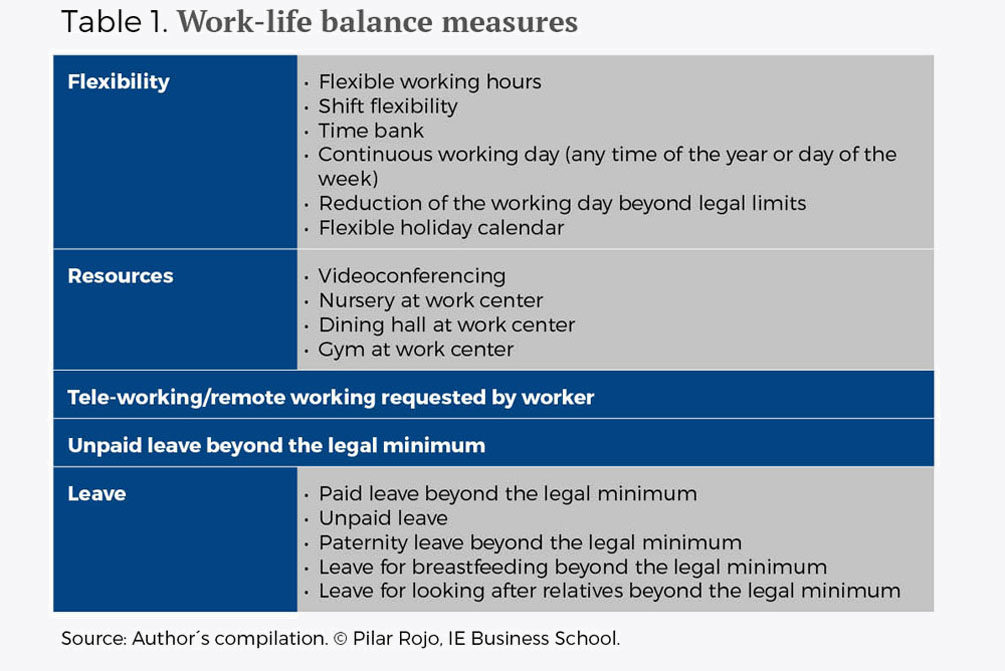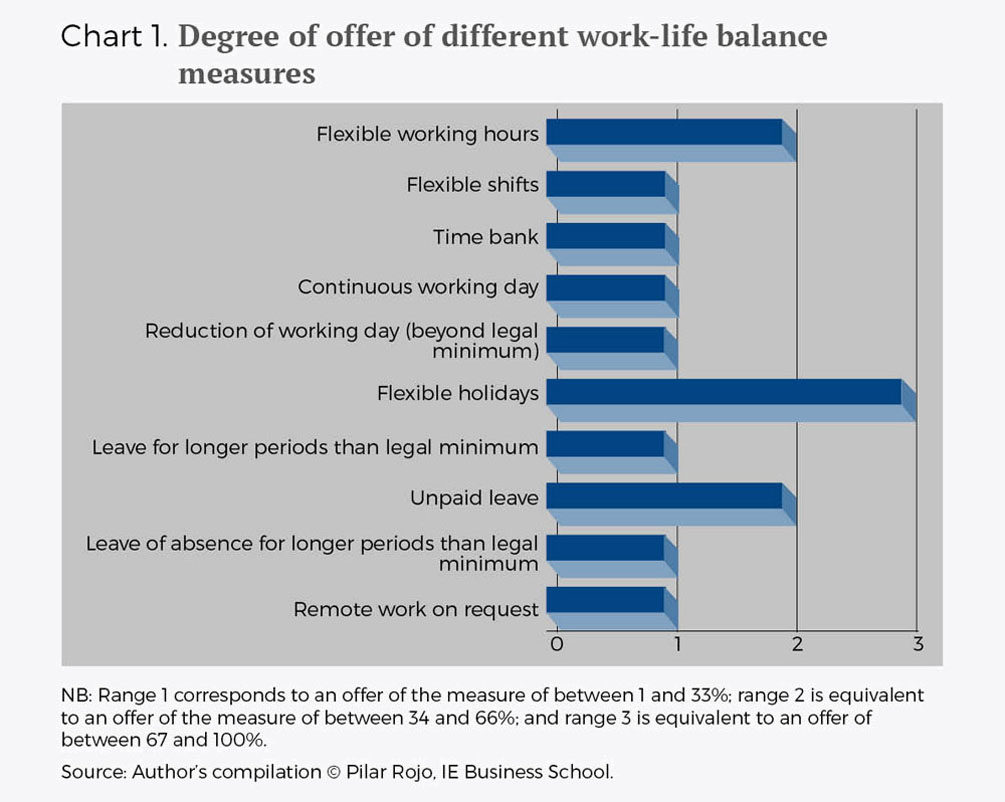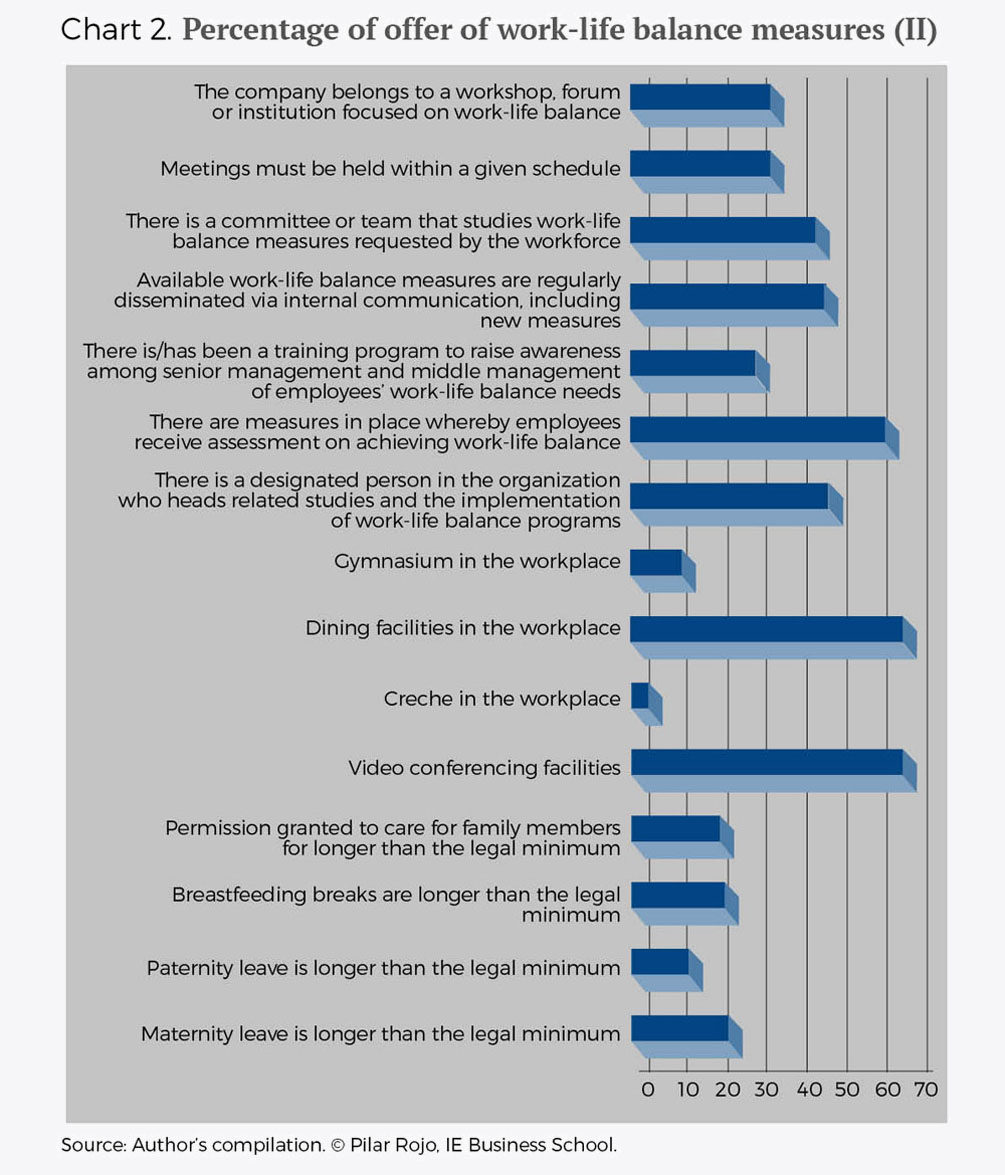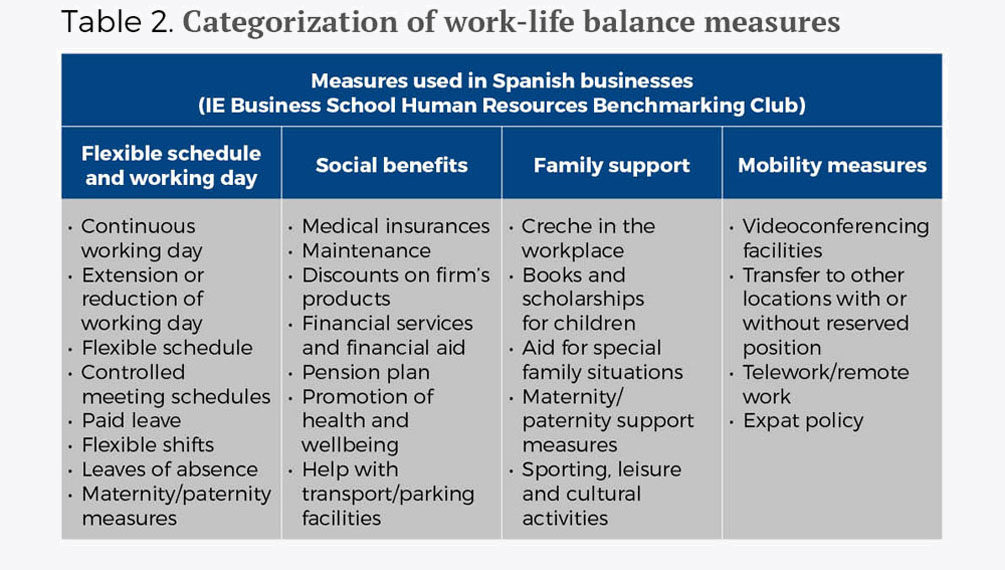The need for a work-life balance has grown in recent years as a result of complex demographic, labor and cultural changes in our society. Recent research undertaken by IE Business School confirms the hypothesis that work-life balance measures have a positive impact on the productivity of companies located in Spain, despite the current crisis.
The way society is reacting to changes in sociolabor, demographic and cultural structures, the interaction between them, and the needs they produce, is affecting companies to such an extent that they are now considering, and in some cases offering, work-life balance measures.
Of the various generations that make up the labor market with their respective cultures, the X and Y generations are the ones that are the most demanding, pressurizing organizations to consider offering more in terms of the work-life balance. The X generation has experienced major shifts in sociolabor and demographic trends due to a number of factors, including an increase in the number of working women and couples with two incomes or careers, a tendency to have their children later in life (in their 30s-40s, coinciding with productivity peaks), an increase in single-parent families, and a growing need to become carers for the elderly as a result of gradual population-ageing. Meanwhile, the Y generation, or the IT generation require greater autonomy and flexibility and value the work-life balance more highly.
Despite the appearance in the last decade of formulas that help make work and personal life more compatible through new organizational models, there are two main issues that still hinder the work-life balance in Spain. One is related to the organization of working hours (longer breaks for lunch of up to two or three hours) and another is related to the culture of physical presence, which still applies in many companies in Spain.
The more work-life balance measures companies offer to workers, the greater the improvement in corporate productivity.
Spain is third in the European Union in terms of the longest working day, yet it also has the lowest level of performance per hour worked. Hence the workers’ demands outlined above more than justify studying how work-life balance measures would affect organizations’ bottom-line results.
To confirm whether or not the offer of work-life balance measures would increase corporate performance, we designed and sent a questionnaire to 800 companies in Spain. The aim was to measure aspects that included the impact of the offer of work-life balance measures on productivity. Table 1 shows the measures we used in the questionnaire (those that increase the minimum levels compulsory by law in order to offer sufficient time and flexibility to enable employees to find a balance between both areas).

Additionally, in order to measure productivity (i.e. net sales per employee), we used official databases (SABI and ORBI). We worked with a sample of 198 companies across 44 sectors (60.15% from services and 34.9% from industry). The result was a positive correlation between the variables affecting the offer of work-life balance measures and productivity (b=0.072, p=0.001). Therefore, the more work-life balance measures companies offer to workers, the greater the improvement in corporate productivity.
From the conceptual point of view and according to different models like the Benefit Exchange, research findings showed that when the organization offers its employees one or more work-life balance measures, employees see them as being beneficial for them and they react by providing the organization with greater commitment and/or effort, which contributes to an improvement in organizational efficiency. Furthermore, in Spain, as in other countries, work-life balance measures are still few and far between, and employees usually value them greatly. The way they are managed is not easy to duplicate because it often depends on how each supervisor or manager interprets the measures. Accordingly, offering them can be a source of competitive advantage and can encourage the employee to make greater efforts, thereby leading to an increase in productivity, as suggested by the Theory on Resources and Capacities.


What are the work-life balance measures most commonly offered in Spanish companies?
Our study also revealed the work-life balance programs most commonly offered at companies in Spain (see charts 1 and 2). As shown in chart 1, the most commonly offered measure is flexibility regarding the holiday calendar (between 67 and 100% of the companies), followed by flexibility in terms of working hours and unpaid leave (between 33 and 66% of the companies). Thirdly (1 and 33% of companies) other measures include flexibility regarding shifts, time banks, shorter but more intense schedules, extension of the shorter working day beyond legal requisites, increase in paid leaves, increase in leaves of absence and remote work. Table 2 shows that the measures offered are generally categorized as flexibility measures.

The proven effects on profitability of the offer of work-life balance measures by businesses, which form part of the findings of this research, may provide companies with the knowledge they feel they need to offer these types of measures, particularly when considering the importance of attracting and retaining talent, which will be scarce in the future.
© IE Ideas.











